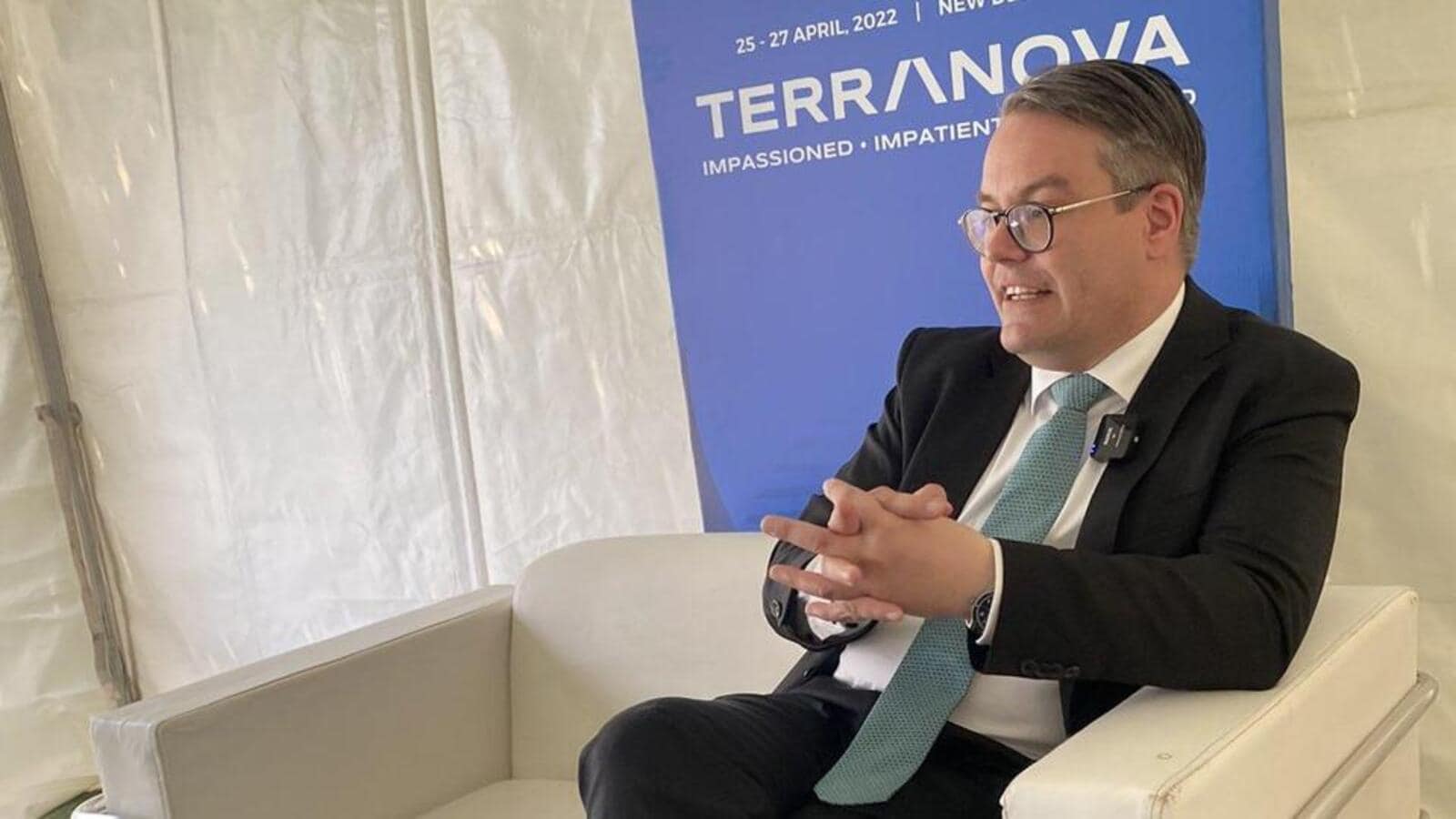[ad_1]
NEW DELHI: German minister of state for foreign affairs Tobias Lindner said on Wednesday that it is in the common interest of Germany and India to uphold the international rules-based order against the backdrop of the Ukraine crisis.
Lindner, in India to participate in the Raisina Dialogue and hold bilateral meetings, made it clear that Germany wasn’t in the business of “preaching and teaching” to India on the Russian invasion of Ukraine. The aim, he said, is to pull, rather than push, India on the issue and to understand New Delhi’s perspective on the crisis.
The German minister is part of a steadily growing list of European leaders who have travelled to the Indian capital in recent weeks to discuss the fallout of the Russian attack on Ukraine, especially its impact on the security architecture created after World War 2.
“I believe it is in our common interest to uphold the international rules-based order because that’s the basis for peace, sovereignty [and] territorial integrity, but also for close economic ties,” Lindner told a small group of reporters. He stressed that he was not in India “to teach or preach”, and that he intended to “understand the Indian perspective but also more to pull, than to push, India”.
Lindner endorsed European Commission President Ursula von der Leyen’s contention that the war in Ukraine would impact the Indo-Pacific, and said it could no longer be “business as usual with Russia at every international forum”. Russia’s war of aggression has “implications in [the case of] China”, he added.
“We will not ignore other conflicts and security concerns in other regions and we need to stay engaged,” he said, expressing concern about the recent security pact between China and Solomon Islands. As a permanent member of the UN Security Council, China is expected to comply with the international rules-based order and rulings of international courts on issues in the South China Sea, he said.
Describing India as a strategic partner for the new German government, he said Berlin wants to deepen relations with New Delhi in areas such as economy, education, technology and security. “We are looking forward to the bilateral government consultations in Berlin on Monday with the Indian Prime Minister and several ministers,” he said.
Asked about Germany’s continued dependence on Russian energy, Lindner said the European Union is expected to have a full embargo on Russian coal in the next few weeks. There is also a possibility of cutting Russian oil supplies to zero within this year, though it will take up to two to three years to reduce Germany’s dependence on Russian gas, he said.
“Sanctions on Russia need to be sustainable. We believe the conflict with Russia is not a sprint, it’s a marathon. [Russian President Vladimir] Putin will stay, their policies won’t change,” Lindner said.
“That’s the key message of our government to the Indian Prime Minister – that what happens in Ukraine is also an enormous attack on the international rules-based order, sovereignty, territorial integrity. It should be in the interest of all countries…to uphold the UN Charter,” he added.
[ad_2]
Source link

